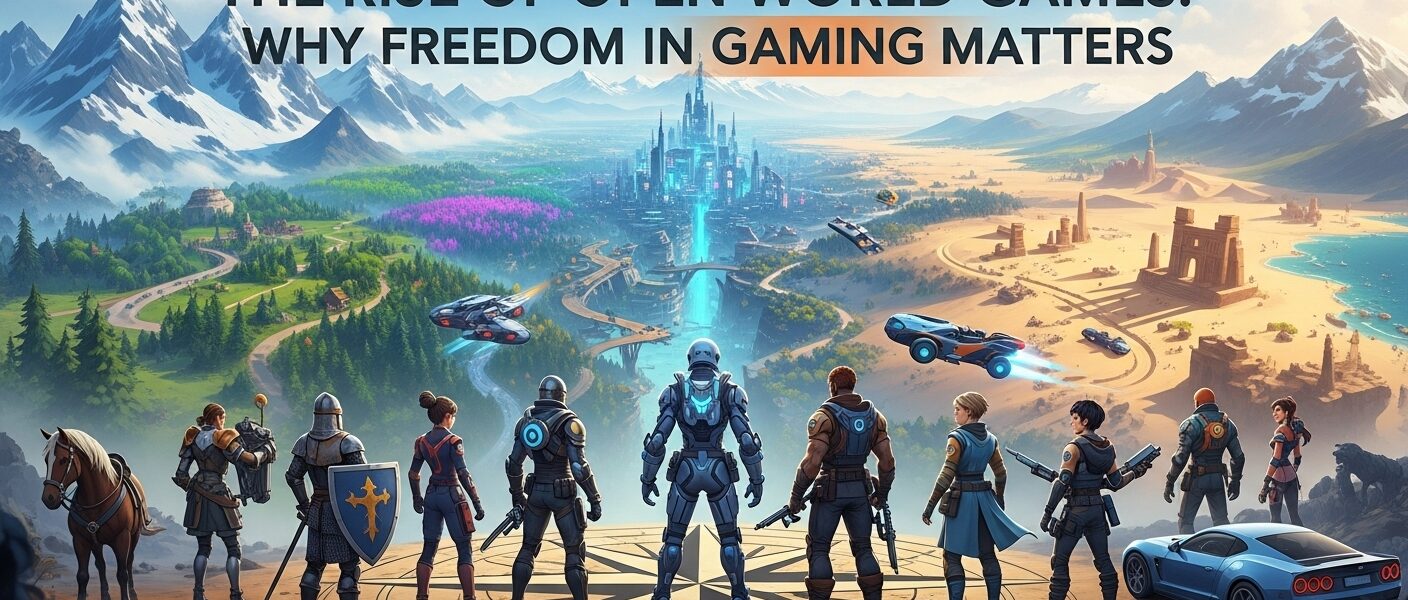Introduction
One of the biggest shifts in gaming over the last two decades has been the rise of open world games. Unlike linear games that guide players down a single path, open worlds offer freedom—freedom to explore, create, and experience gameplay at your own pace. From classics like Grand Theft Auto III to modern giants like The Witcher 3 and Elden Ring, open world games dominate today’s market.
In this blog, we’ll explore the history, impact, and future of open world games while analyzing why players love them so much.
What Defines an Open World Game?
An open world game provides players with:
- Nonlinear gameplay
- Exploration freedom
- Multiple paths to success
- Interactive environments
Unlike older games where levels were pre-set, open worlds encourage creativity and replayability.
The Early Days of Open World Gaming
GTA III and the Sandbox Revolution
In 2001, Grand Theft Auto III introduced the modern open world. Players could ignore missions and simply roam Liberty City. It changed gaming forever.
Zelda and Early Experiments
Even earlier, The Legend of Zelda (1986) offered a form of openness. Players could wander, battle enemies, and explore at their own pace, planting seeds for the genre.
Why Players Love Open Worlds
Freedom of Choice
Players love making their own stories—whether that means completing every quest or ignoring them entirely.
Immersion
Exploring vast, detailed worlds makes players feel like part of a living universe.
Replay Value
Open worlds rarely play the same twice. Players return to find new paths, missions, or secrets.
Iconic Open World Games
- Skyrim: Set the standard for fantasy exploration.
- The Witcher 3: Known for deep storytelling and side quests.
- Minecraft: The ultimate sandbox where players create worlds.
- Elden Ring: Proved open worlds can blend exploration with difficulty.
Challenges of Open World Games
- Content Overload: Too many quests can overwhelm players.
- Repetition: Some open worlds feel empty or repetitive.
- Technical Demands: Large maps require powerful hardware.
The Future of Open World Games
Expect to see:
- Procedurally generated worlds powered by AI.
- Interactive NPCs with lifelike behavior.
- VR integration for deeper immersion.
Conclusion
Open world games matter because they give players freedom and control. They’ve redefined storytelling, gameplay, and immersion. The trend will only grow, with future open worlds offering limitless possibilities.





